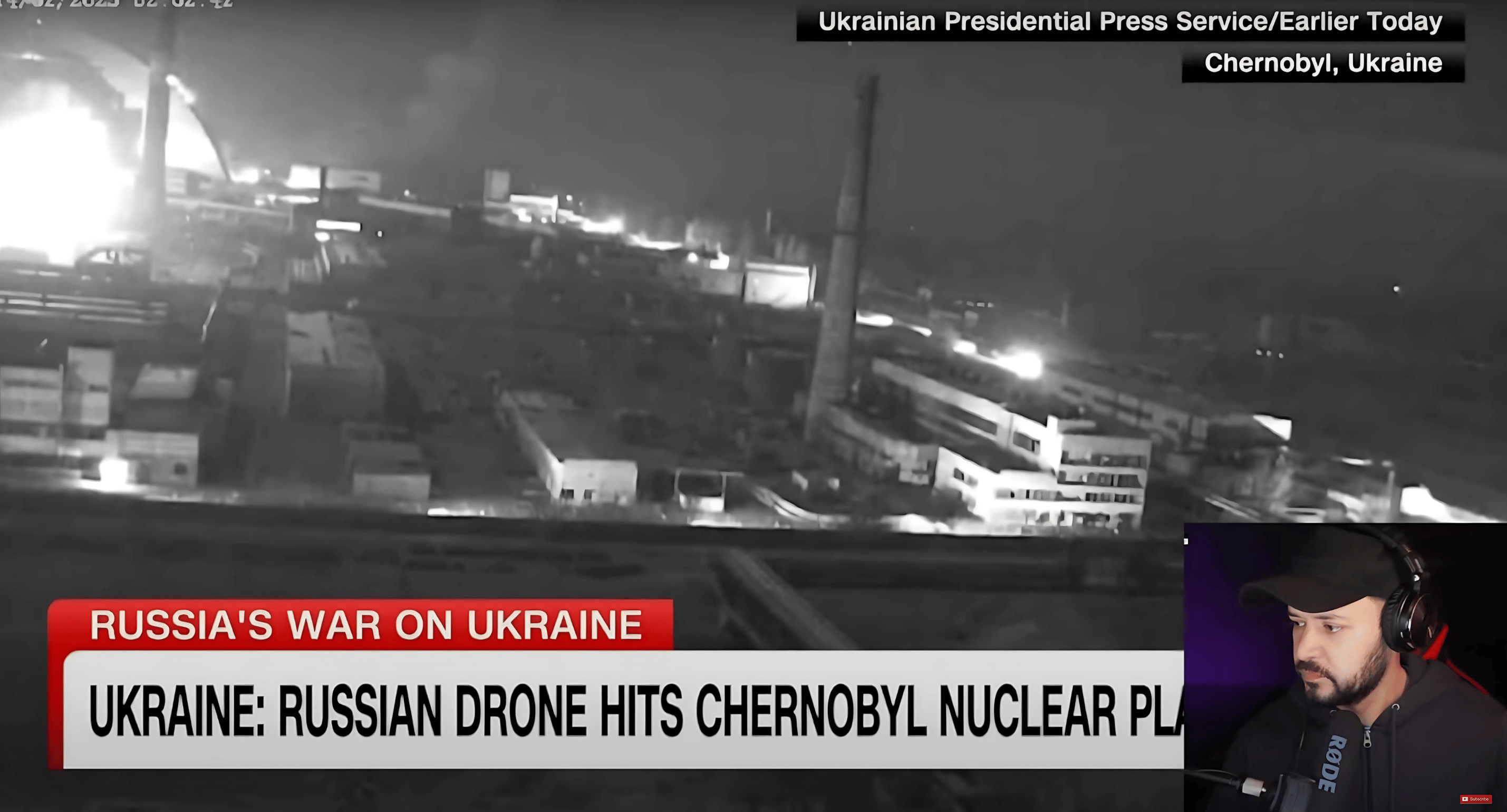In a dramatic escalation just hours after President Trump announced peace negotiations between Russia and Ukraine, a drone strike hit the protective shell covering the Chernobyl nuclear power plant early Friday morning.
Ukrainian President Volodymyr Zelensky immediately blamed Russia for the attack, claiming a “Russian attack drone with a high explosive warhead” struck the shelter covering the remains of the reactor that exploded in 1986. Surveillance footage shows the moment of impact followed by an explosion on the dome’s surface.
“This shelter was built by Ukraine together with other countries of Europe and the world, together with America, all those committed to real security for humanity,” Zelensky stated. “The only country in the world that attacks such sites, occupies nuclear power plants, and wages war without any regard for the consequences is today’s Russia.”
Radiation Levels Remain Stable
The International Atomic Energy Agency (IAEA) has confirmed that an explosion was heard at the site overnight and a fire was detected at the New Safe Confinement structure, but radiation levels both inside and outside the facility remain normal and stable.
IAEA fire safety personnel reportedly responded within minutes, and there was no indication of a breach in the containment structure’s inner barrier. No casualties have been reported.
Russia Denies Involvement
The Kremlin has categorically denied responsibility for the strike. Russian spokesperson Dmitri Peskov told reporters that the accusation was a “fabrication,” stating: “The Russian military does not do this.”
The timing of the incident—just six hours after President Trump announced the start of peace negotiations—has raised questions about who might be responsible and what this means for the fragile peace process.
Peace Talks “Obsolete”
European Union foreign policy chief Josep Borrell Kalis declared that US-Russia talks were now “obsolete” following the drone strike.
“It clearly shows that the Russians don’t want peace,” Kalis told journalists at the Munich Security Conference. “All these other talks have become totally obsolete because of the bombing of the nuclear station, bombing of civilians, bombing of civilian infrastructures.”
Kalis, the former prime minister of Estonia, has been a vocal supporter of Ukraine and has criticized President Trump’s approach to negotiations with Putin.
Zelensky Warns of Broader War
In a particularly alarming development, President Zelensky warned world leaders at the Munich Security Conference that Putin has no intention of ending the conflict and may be preparing for a much larger military campaign.
“I think that [Vladimir Putin] is preparing for war against NATO countries next year,” Zelensky stated. “I think so, but I don’t know. I don’t have 100%. God bless we will stop this crazy guy.”
These comments come as Vice President JD Vance meets with Zelensky on the sidelines of the Munich conference, where the future of Ukraine is a top agenda item.
Mixed Messages from Washington
The drone strike has exposed conflicting positions within the Trump administration. Just yesterday, President Trump announced that Putin was “ready for peace talks” and that the two leaders had agreed to have their teams begin negotiations immediately.
Vice President JD Vance told the Wall Street Journal that the US could hit Russia with sanctions or even send US forces to Ukraine if Putin fails to negotiate in good faith, stating: “There are economic tools of leverage, there are of course military tools of leverage.”
This contradicts statements from Defense Secretary Pete Hegseth, who previously ruled out deploying US troops to Ukraine.
Congressional Reactions
Democratic Congressman Jason Crow, speaking from the Munich Security Conference, expressed concern about the inconsistent messaging from the Trump administration.
“When you have partners and allies… they don’t know [the US position], and we actually don’t have the ability to tell them because we’re getting mixed messages,” Crow said. “Pete Hegseth, the Secretary of Defense, will say one thing that will run contrary to what Donald Trump wants him to say, then he’ll put out a tweet saying something else, then JD Vance will say something else.”
Crow also claimed that his Republican colleagues privately express concerns about Trump potentially abandoning Ukraine but are reluctant to speak publicly.
